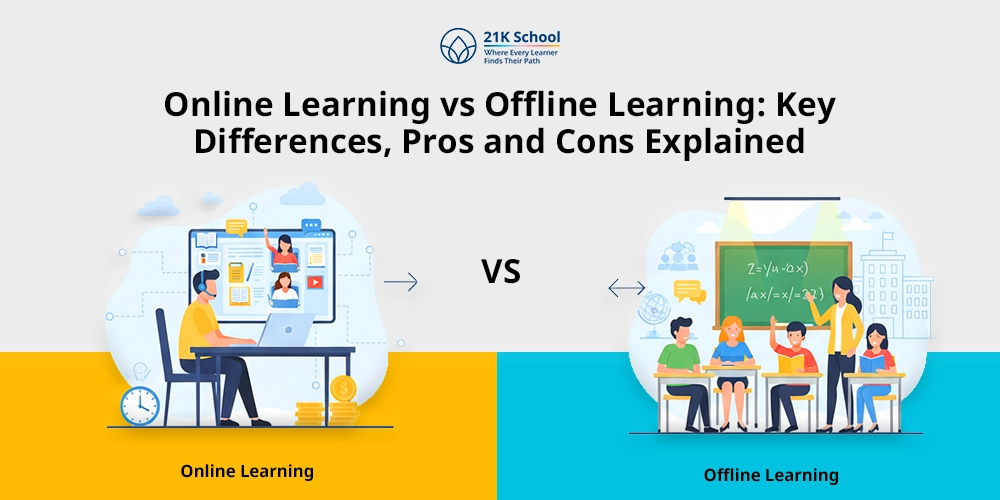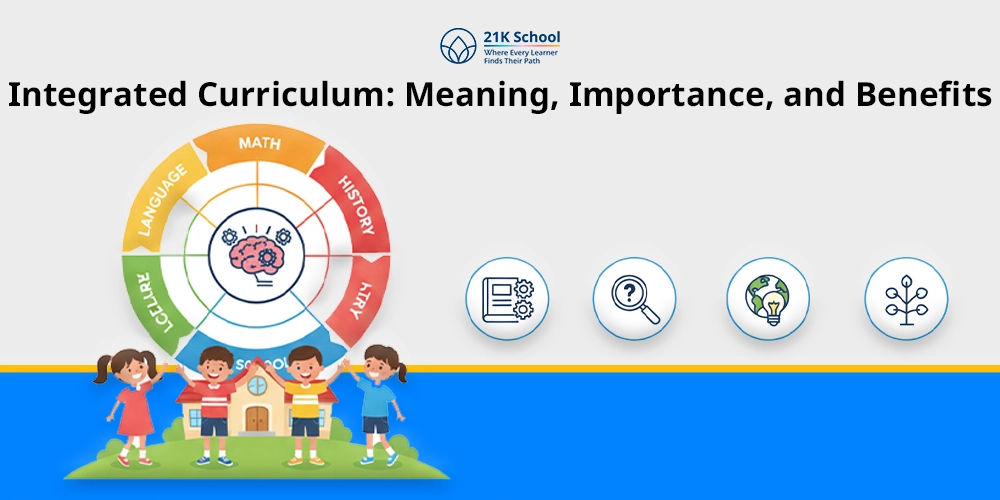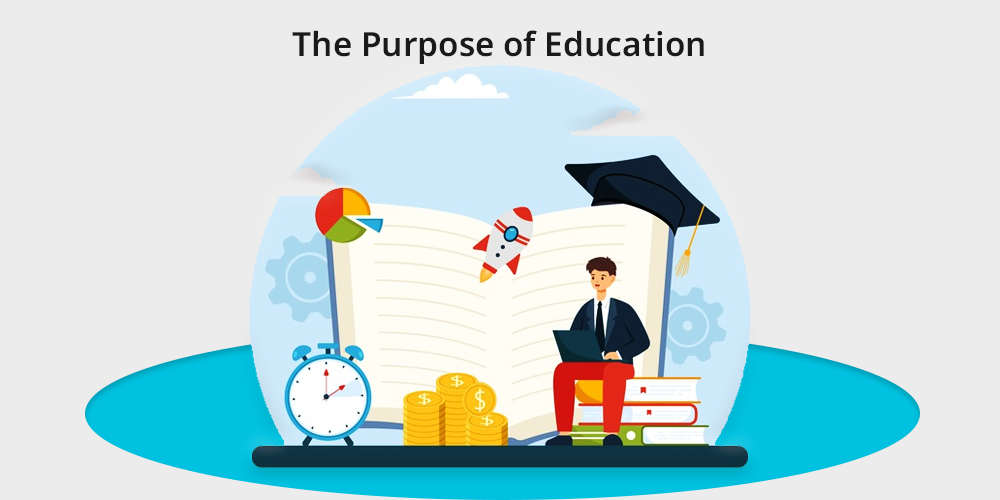
Have you ever stopped to think – what’s the real aim of education? Is the answer beneficial grades, a respectable job, and fulfilling the requirements of our teachers on report cards?
The fact is, education is much more than classrooms and tests. Education is about change.
It is about becoming a better person, developing the ability to think, make sound decisions, solve problems and understand the world better.
But in today’s rapidly changing world, perhaps it is best to ask ourselves the question: why do we learn?
Table of Contents
- What is Education?
- The True Purpose of Education in Modern Society
- 1. Personal Growth and Improvement
- 2. Career Advancement
- 3. Cultivating Independent Thought and Critical Thinking
- 4. Building Confidence and Self-Reliance
- 5. Encouraging Open-Mindedness
- 6. Enhancing Problem-Solving and Innovation
- 7. Improving Mental Health
- 8. Fostering Lifelong Learning and Adaptability
- 9. Contributing to Society
- 10. Empowerment and Freedom of Choice
- Conclusion: Redefining the Purpose of Education for Tomorrow
What is Education?
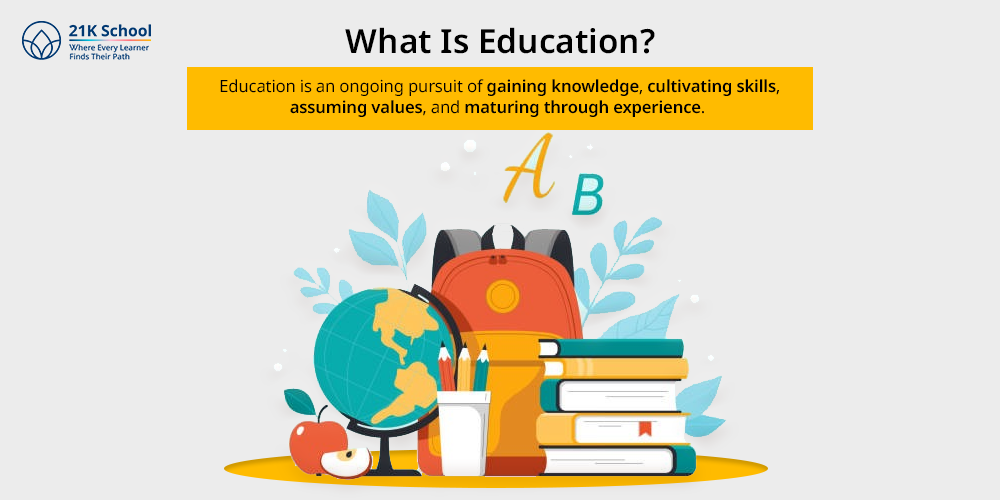
Education is an ongoing pursuit of gaining knowledge, cultivating skills, assuming values, and maturing through experience. It determines who we are: our worldview, sense of destiny, and capacity to react to what happens in life.
Education is typically related to school, degrees, or diplomas. But it is far beyond academics or certificates. True education that we get occurs in schools (classrooms), at home, through peers, through media, travel, and other experiences.
Education is dynamic, not confined to a syllabus. It is a means through which we gain from our experiences about the world, others, and ourselves.
The True Purpose of Education in Modern Society
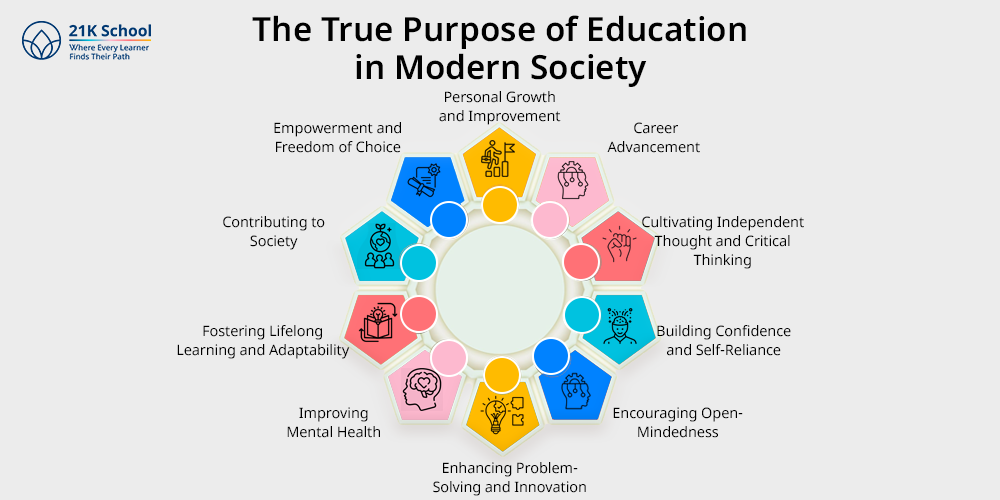
In the 21st century, the ultimate goal of education is to prepare individuals to reach their utmost potential and positively impact society.
Education is paramount in equipping individuals with the knowledge, skills, and values needed to face the rapidly evolving world. It covers the ways to unsettle the status quo for the benefit of humankind.
1. Personal Growth and Improvement
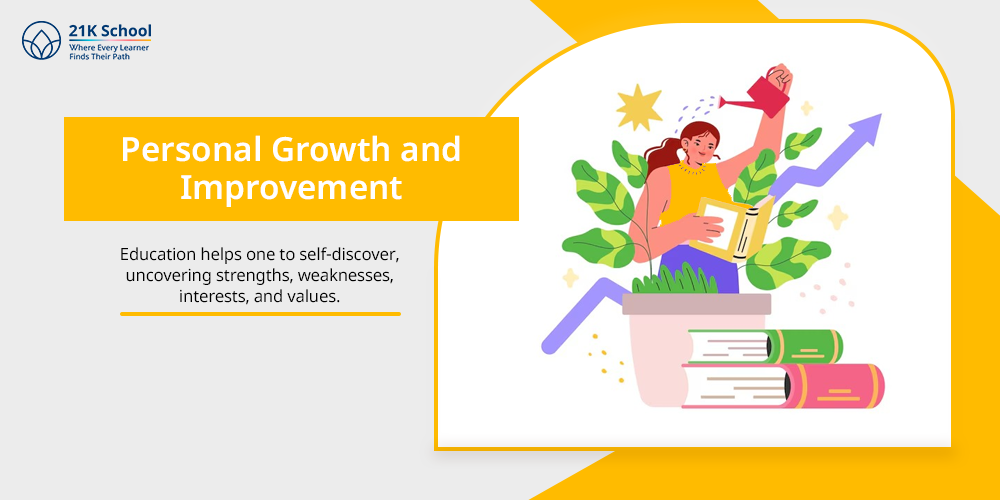
Education helps one to self-discover, uncovering strengths, weaknesses, interests, and values. It allows self-reflection and setting goals that are meaningful and interdependent.
Education also expands emotional horizons. It exposes learners to different ideas and experiences, which create opportunities for personal development and growth. Students learn to identify and deal with negative emotions, bounce back, and develop resilience.
Read on to know more about, Personality Development Tips for Students
Education is a systematic process of learning, feedback, and exploration that motivates people to find their best selves. This includes enhancing intelligence, but also pursuing the most complete, capable, and humane self.
2. Career Advancement
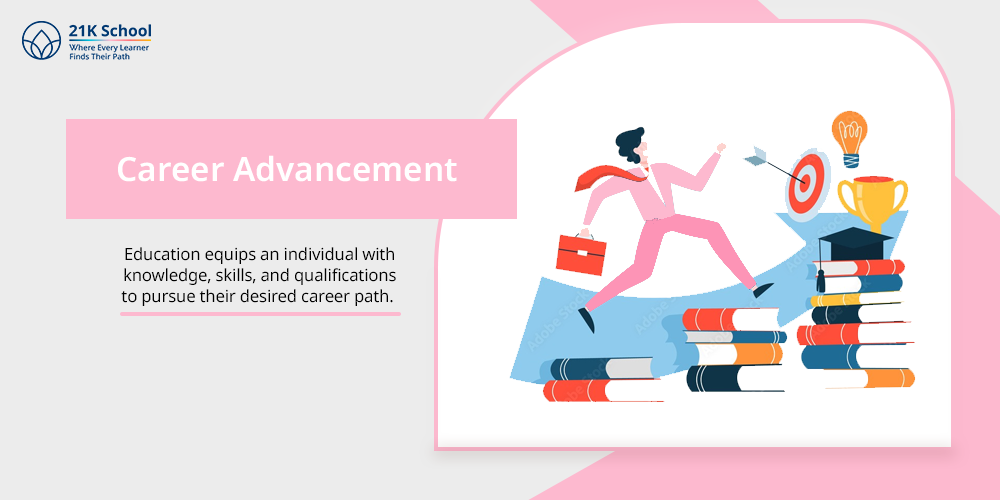
Education equips an individual with knowledge, skills, and qualifications to pursue their desired career path. It develops soft skills such as communication, teamwork, time management, and decision-making. These can prove even more beneficial than technical skills.
In today’s dynamic economy, gaining knowledge and soft skills is crucial. Moreover, continuous learning is necessary since the significance of a person in their field is determined by their educational experience.
3. Cultivating Independent Thought and Critical Thinking
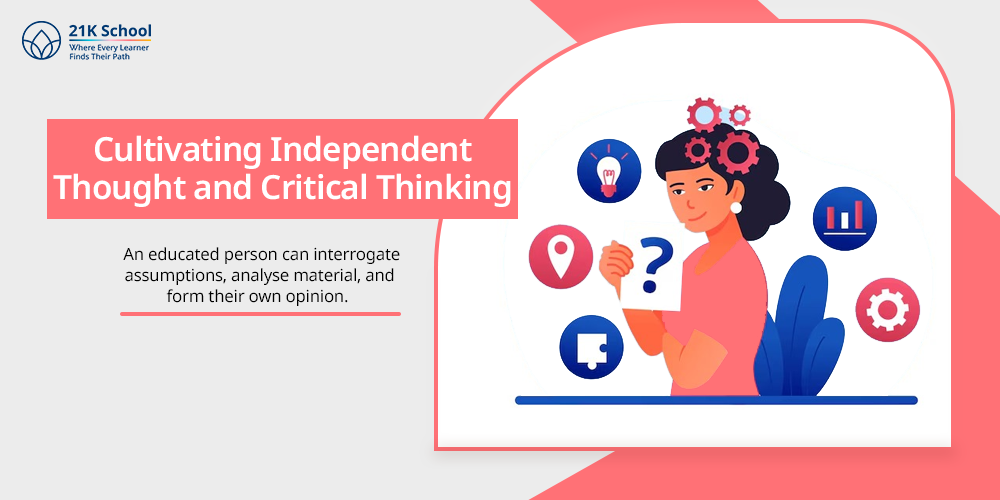
An important, though sometimes overlooked, product of education is thinking independently. An educated person can interrogate assumptions, analyse material, and form their own opinion.
A critical thinker can make decisions rather than simply following the crowd. And in an age when misinformation and opinion fly through the air via various media and peer pressure, thinking for oneself is of paramount importance.
Also read, how to develop critical thinking skills in students ?
Education teaches students to look at issues logically, examine research and backgrounds to weigh the evidence. It ultimately keeps the choices limited so they understand different sides of the issue before deciding on the best course of action.
Education fosters intellectual independence, enabling students to take ownership of their ideas. Rather than merely memorising facts, students engage by asking “why?” and “how?“
It encourages them to pursue solutions and follow up with more questions driven by curiosity.
Here is a list of activities to encourage curiosity in children.
4. Building Confidence and Self-Reliance
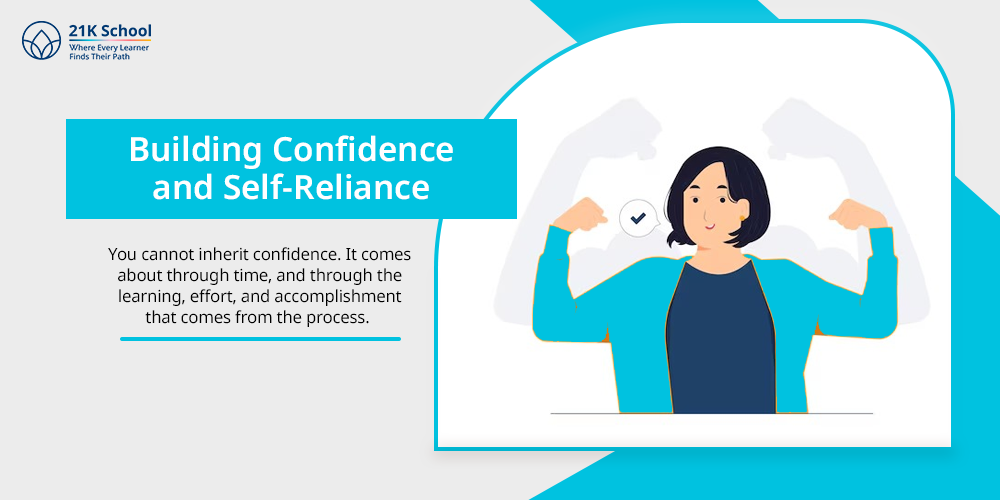
You cannot inherit confidence. It comes about through time, and through the learning, effort, and accomplishment that comes from the process.
Education develops self-confidence through the students’ capabilities, initiating personal actions, and positively approaching unfamiliar experiences.
Education also teaches self-reliance. Rather than being dependent on someone else to tell them what to do and how to act, students are trained to direct their own course. Students can work through solutions and strive for their goals without someone holding their hand all the way through.
Ultimately, self-confidence and self-reliance will enhance every aspect of life. These individuals are empowered to lead, solve, innovate, and inspire others.
Read on to learn how to build confidence in children ?
5. Encouraging Open-Mindedness
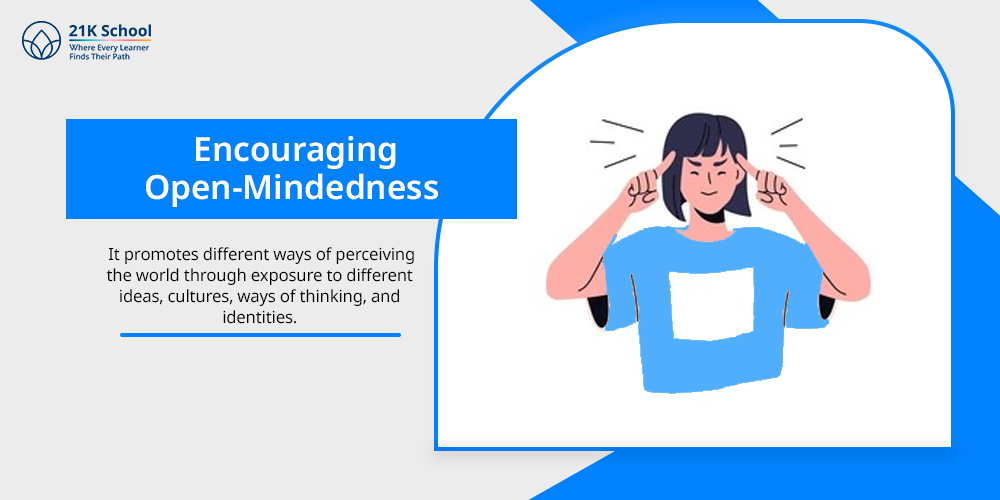
Education connects people to a world that is bigger than themselves. It promotes different ways of perceiving the world through exposure to different ideas, cultures, ways of thinking, and identities.
In developing a deep understanding of different perspectives, students learn to empathise, as well as respect diversity. This also helps avoid decisions based on bias.
Open-mindedness comes from inquiry, which promotes thinking freely. Through the inclusion of history, global issues, languages, and the arts, students slowly develop an understanding of complexity. They learn that there is not just one side to every story.
Awareness and open-mindedness improve communication skills and collaboration. It helps students to listen, value opposing opinions, and allows for productive interactions in diverse groups.
6. Enhancing Problem-Solving and Innovation
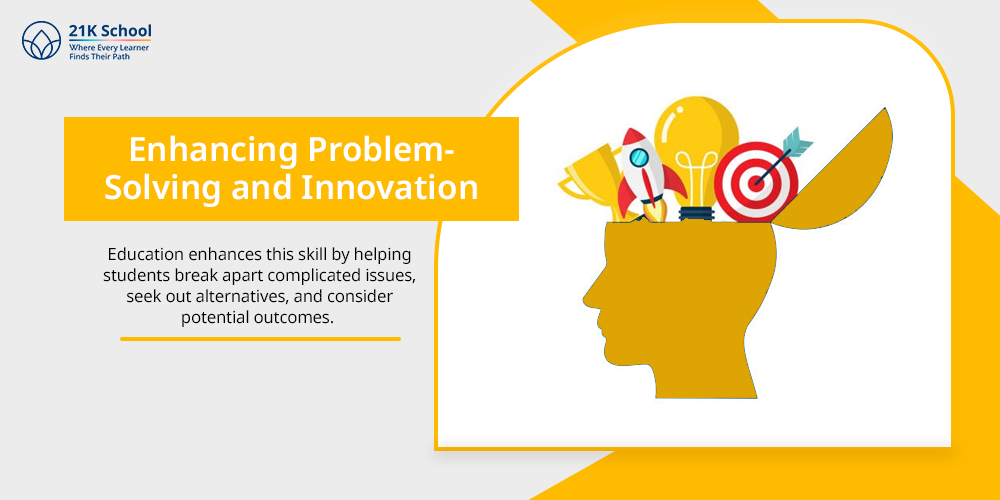
Problem-solving is one of the most important life skills a person can develop. Education enhances this skill by helping students break apart complicated issues, seek out alternatives, and consider potential outcomes.
Read here to learn how to improve problem-solving skills. ?
From science to business to art to life itself, problem-solving is central to innovation. Education enables students to perform experiments, take risks, and fail until they succeed. These are the same qualities required for innovation and entrepreneurship to flourish.
The most innovative, cutting-edge ideas often come from those who take risks and think differently. Progressive schools such as the 21K School are embedding real-world problem-solving into their educational programs. It is achieved through projects, group work, and interdisciplinary approaches.
7. Improving Mental Health
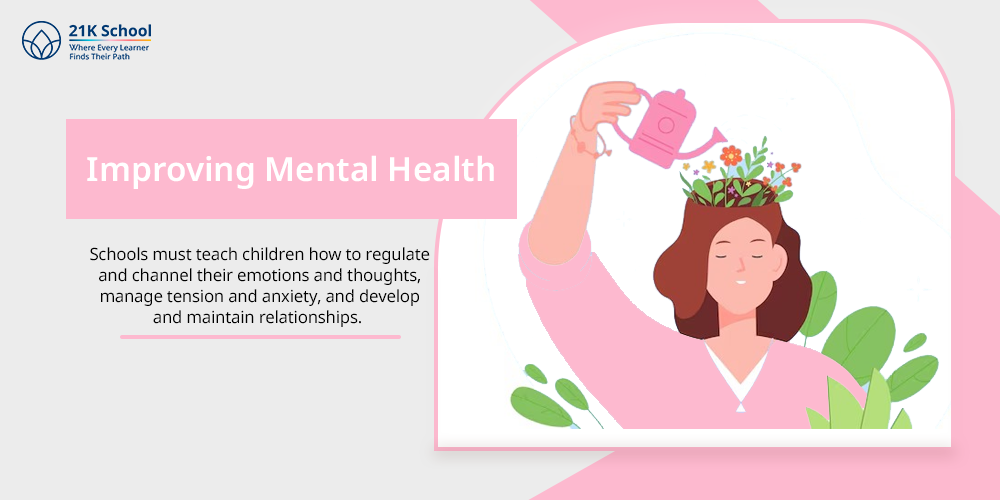
A student’s mental health is as important as academic success, if not more. Schools must teach children how to regulate and channel their emotions and thoughts, manage tension and anxiety, and develop and maintain relationships.
In the age of high-speed, high-stress living, instruction that is geared toward emotional health will bring forward more prepared students. These will be less likely to suffer from burnout, anxiety, or low self-esteem.
From the educational point of view, stressing the value of emotional learning allows for a space where children will feel welcome and safe. These are the kids who are better equipped to become confident, emotionally stable learners, ready to tackle life with determination.
8. Fostering Lifelong Learning and Adaptability
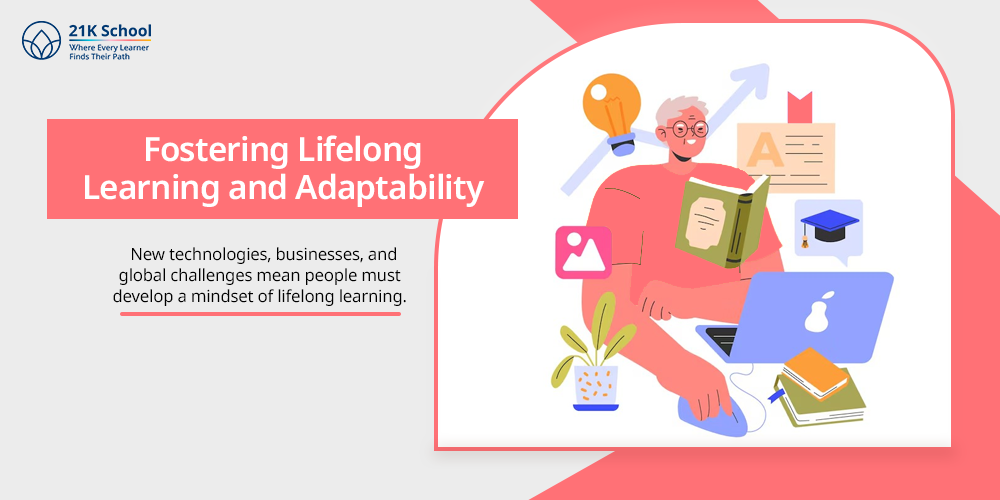
The world is evolving at an unprecedented rate. New technologies, businesses, and global challenges mean people must develop a mindset of lifelong learning.
Education should instil a true love for learning and the ability to be adaptable. This allows learners to continue gaining knowledge required for work, be prepared for transitions, be proactive in dealing with uncertainty, and ultimately grow. Teachers must teach students to be capable of independent learning.
Know more about how to make a child learn independently ?
9. Contributing to Society
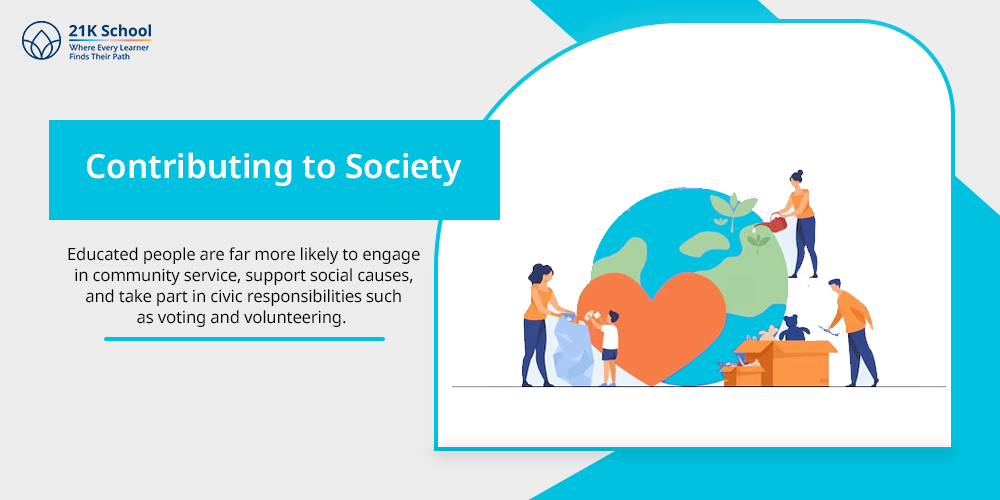
Educated people are far more likely to engage in community service, support social causes, and take part in civic responsibilities such as voting and volunteering.
Education creates a belief in justice and accountability, while creating an understanding of how to become a better person and community member.
It contributes to a better world because an educated population is capable of pulling others up, solving social problems, and taking on more forms of advocacy to support positive change.
Education also removes certain social inequities by imparting knowledge to marginalised or disaffected groups to control or combat certain barriers to a more meaningful contribution to the community.
10. Empowerment and Freedom of Choice
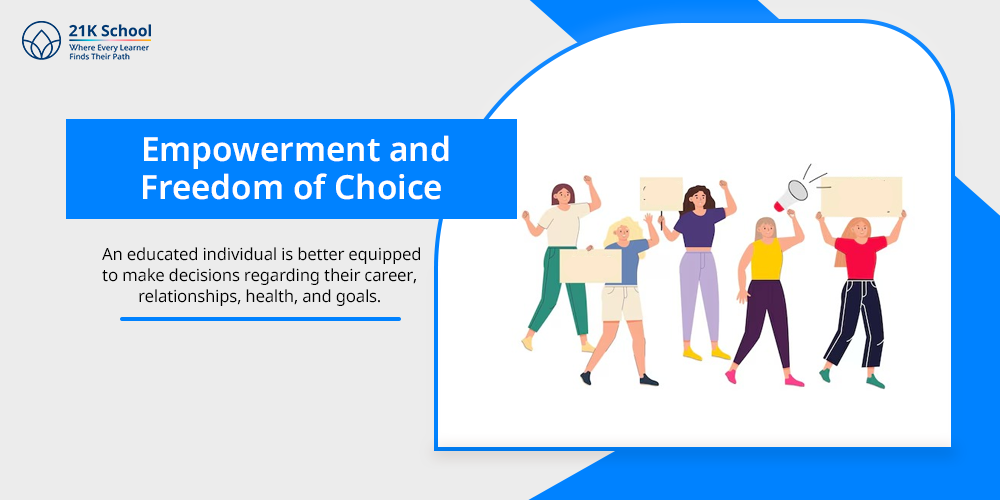
Education empowers the life of each student. An educated individual is better equipped to make decisions regarding their career, relationships, health, and goals.
Education equips individuals with knowledge and confidence to speak up for themselves, stand up against injustice, and aim to make significant contributions to society. It also allows people to make their decisions out of passion and purpose and not out of compulsion or circumstance.
Freedom of choice is particularly important for children and young adults, as they require a strong foundation to enhance their growth as individuals.
Conclusion: Redefining the Purpose of Education for Tomorrow
Education paradigms have to shift since it is a transformational journey that goes beyond academic knowledge. The real promise of education is in building self-assured, benevolent and inquiring people.
Education is the foundation for the development of one’s ability for individual growth, emotional attachment, economic prosperity, and their role in society.
The purpose of education isn’t just to impose knowledge, but to be a part of a genuine process of empowerment. To make the world a better place, we need to focus our efforts on our learners, one child at a time.

